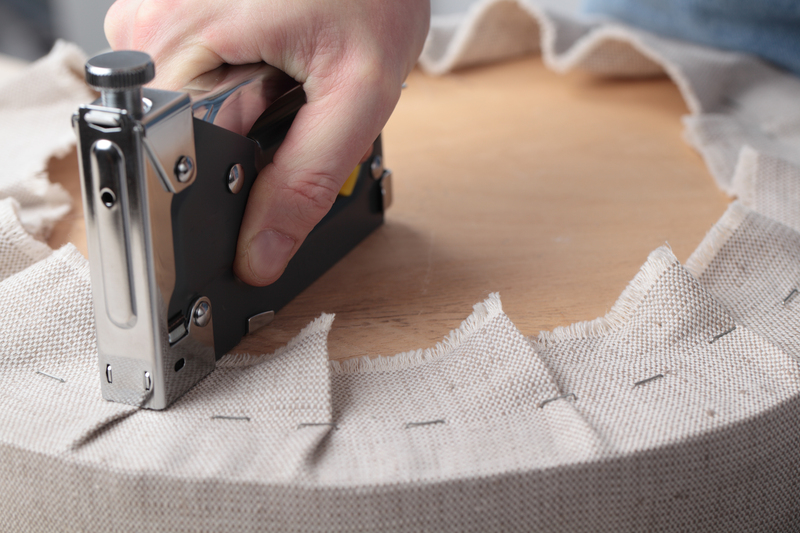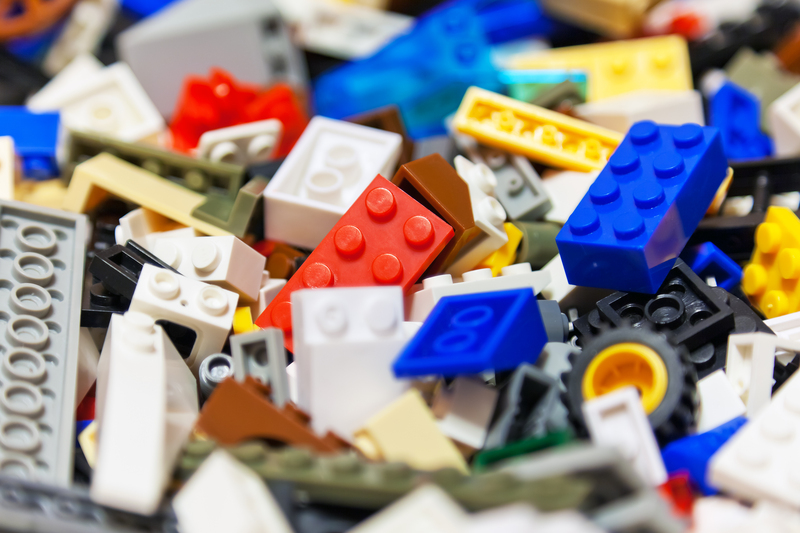Alternatives to Trash: Smart Ways to Handle Old Kitchenware
Every household eventually faces the dilemma of what to do with worn-out or unused kitchenware. Throwing old pots, pans, dishes, and utensils in the trash seems easy, but it contributes to landfill overflow and environmental harm. Instead, consider innovative and responsible alternatives to trash for old kitchen items. This comprehensive guide explores eco-friendly, creative, and community-minded solutions for dealing with your outdated or broken kitchen gear, transforming your clutter into opportunities for sustainability and giving back.

Why Avoid Sending Old Kitchenware to the Landfill?
Before diving into alternatives, it's essential to understand why kitchenware shouldn't go straight to the garbage:
- Environmental Impact: Metals, ceramics, and plastics take hundreds of years to break down in landfills, leaching toxins along the way.
- Resource Waste: Many kitchen items can be recycled or reused, preserving valuable materials and energy.
- Community Value: Repurposing or donating still-functional kitchenware can benefit people in need and reduce overall waste.
By exploring eco-friendly kitchenware disposal options, you actively participate in building a greener, more sustainable community.
1. Direct Reuse: Giving Your Old Kitchenware a Second Life
Repurpose at Home
One of the easiest alternatives to trash is to find new uses for old kitchen items within your home:
- Storage Solutions: Glass jars, old mugs, and sturdy bowls make excellent containers for organizing office supplies, nails, or bathroom essentials. Turn forgotten teacups into charming planters or candle holders.
- Garden Tools: Metal colanders or pots with holes can double as unique planters for herbs or flowers. Large spoons or ladles can be cleaned and repurposed as garden labels or bird feeders.
- Arts and Crafts: Old plates and saucers can be broken and integrated into beautiful mosaic art.
DIY Projects to Transform Kitchenware
If you enjoy DIY, there are countless ways to transform worn cookware into beautiful or functional objects:
- Wall Art: Create a rustic kitchen wall display from decorative plates, vintage utensils, or colorful cutting boards.
- Pet Accessories: Convert old bowls into feeding stations for pets or use a muffin tin as a treat puzzle for dogs.
- Jewelry Holders: Stack teacups and saucers into unique stands for rings, earrings, or small trinkets.
Tip: Browse online platforms for tutorials tailored to the items you're looking to repurpose!
2. Donate or Give Away Usable Kitchenware
Local Charities and Nonprofits
Mildly used kitchenware still capable of serving its original purpose can be a blessing to others. Consider donating to:
- Thrift Stores: Organizations like Goodwill, Salvation Army, and local charity stores accept pots, pans, dishes, and glassware in good condition.
- Homeless Shelters: Many shelters and transition houses are grateful for functional cookware to serve residents.
- Community Centers: Nonprofits that run meal programs often need extra kitchen equipment.
Online Gifting & Regifting Platforms
Online communities offer excellent alternatives to trash by connecting you with people in need:
- Freecycle, Buy Nothing Groups: Find local groups on Facebook or other platforms where you can give away usable kitchenware directly.
- College Campuses: Students, especially those furnishing apartments, often seek affordable kitchen basics.
Tip: Always clean items thoroughly and check for cracks or damage before donating.
3. Recycle Old Kitchenware Responsibly
Can Cookware Be Recycled?
Many types of kitchenware are made from recyclable materials, but there are caveats:
- Metal Cookware: Aluminum and stainless steel pots and pans are usually accepted by scrap metal recycling facilities. Remove any plastic or unusable components first.
- Ceramic, Glassware, and Pyrex: Traditional curbside recycling does not accept ceramics, drinking glasses, or ovenproof dishes. However, some specialized facilities might process them for aggregate or art use.
- Plastic Utensils: If marked with a recycling symbol, they may be accepted in your curbside program. Always check local recycling guidelines.
How to Recycle:
- Search for local scrap yards or recycling centers that accept metal kitchenware.
- Contact your municipal recycling program to ask about drop-off options for unusual materials.
- Participate in community recycling events that collect household goods, often held seasonally in many towns.
Note: Nonstick pans, especially those with Teflon or other coatings, require special handling and may not be recyclable everywhere due to chemical concerns. Always ask your facility!
4. Repair, Restore or Upcycle
Is Repairing Worth It?
We often overlook the possibility of repairing kitchen items. Simple fixes can extend the life of cookware and save you money:
- Re-season cast iron pans and fix minor surface rust at home with oil and heat.
- Replace handles or knobs on pots and skillets--replacement parts are widely available online.
- Sharpen dull knives rather than tossing them. Many hardware stores and kitchen shops offer affordable sharpening services.
If you enjoy tinkering, upcycling is a creative, environmentally-conscious alternative to trashing kitchenware.
Inspire with Upcycling
- Cake stands: Glue an old dinner plate onto a wine glass or candlestick for a unique dessert stand.
- Garden decor: Hang old forks and spoons as whimsical wind chimes or garden ornaments.
- Hooks and hangers: Bend large spoons or forks to create coat hooks for your entryway.
Tip: Upcycling not only diverts waste but also provides personalized, artistic touches to your home and garden.
5. Host a Kitchenware Swap: Community Sharing Made Easy
A kitchenware swap event is a fun, social, and sustainable alternative to trashing unwanted items:
- Organize a neighborhood or workplace swap, inviting people to bring clean, functional kitchenware they no longer need.
- Arrange items by type (utensils, bakeware, pots, etc.) and allow everyone to pick items new to them.
- Donate any leftover goods to local nonprofits or shelters.
Bonus: Swaps build community connections and can include recipe exchanges, sustainability talks, or kitchen demos.
6. Sell or Trade Kitchenware
Second-Hand Marketplaces and Apps
Many people are eager to purchase quality kitchenware at a discount:
- List items on eBay, Craigslist, Facebook Marketplace, or apps like OfferUp. Vintage or brand-name cookware, in particular, is sought after.
- Bundle similar items (e.g., a set of mixing bowls or utensils) for greater appeal.
Vintage and Antique Shops
Certain brands and styles of old kitchenware--especially cast iron, enamel, and hand-painted ceramics--are valuable to collectors. Consider reaching out to local antique shops if you suspect your pieces have special worth.
7. Specialized Disposal: When Kitchenware Really Must Go
For items that cannot be reused, repaired, donated, or recycled due to severe damage, safety issues, or hazardous materials, specialized disposal methods are necessary:
- Nonstick or Teflon-Coated Cookware: Check with your city's hazardous waste program for tips on safe disposal due to chemical coatings.
- Shattered Glass or Ceramics: Wrap securely to prevent injury and label clearly before placing in garbage, if no other options exist.
- Electrical appliances (e.g. broken blenders): Use e-waste recycling or participating retailer take-back programs.
Even in these cases, always try to separate materials to minimize environmental impact.
8. Support Educational and Community Projects
Many schools and community organizations use old kitchen items for practical learning or crafts:
- Art Classes: Donate colorful plates or unique shapes for student mosaic or sculpture projects.
- Home Economics Classes: Schools often need functional cookware for teaching cooking basics.
- Community Gardens: Old buckets, colanders, or cups can be repurposed for planting or organizing seeds.
Tip: Reach out to local teachers or program directors to gauge interest in your items.
9. Get Creative: Unconventional Uses for Old Kitchenware
- Candle Molds: Use metal muffin tins or cups as candle forms for homemade gifts.
- Soap Dishes: Repurpose a butter dish or saucer for bathroom or laundry-room soap.
- Desk Organizers: A silverware tray serves perfectly for office supplies or craft materials.
- Children's Play Sets: Clean, non-breakable kitchenware makes excellent additions to play kitchens or sandboxes.
With a bit of imagination, nearly every old kitchen item can find a new function beyond the landfill.
10. Prevent Waste: Choose Durable and Sustainable Kitchenware
While this article focuses on alternatives to trash for old kitchenware, the most effective strategy is preventing waste at the source. Consider these tips when purchasing new kitchen tools:
- Quality Over Quantity: Invest in durable, repairable cookware. Cast iron, stainless steel, and heavy-duty glass can last generations.
- Modular and Multi-Use Items: Choose versatile items that serve several purposes to reduce overall clutter.
- Opt for Recycled or Upcycled Products: Support brands that use recycled metals, glass, or sustainable materials.
- Maintain and Store Properly: Proper cleaning, seasoning, and storage prevent premature wear, extending the lifespan of your kitchen gear.
Tip: When an item finally wears out, you'll already know smart alternatives to letting it go to waste!

Conclusion: Be Smart, Be Green--Choose Alternatives to Trash for Old Kitchenware
The journey to a sustainable kitchen doesn't end when an item is worn or obsolete. By embracing thoughtful alternatives to discarding old kitchenware, you reduce waste, support your community, save money, and even inject creativity into everyday life. From repurposing at home and donating to those in need, to recycling and imaginative upcycling, your old pots, pans, and plates have potential far beyond the landfill.
Next time you clean out your kitchen drawers or cupboards, remember: Every fork, plate, and pan can become a resource instead of refuse. Embrace eco-conscious habits, and let your kitchenware's story continue--in your home, someone else's, or even reshaped into something beautifully new.
Frequently Asked Questions (FAQs) about Handling Old Kitchenware
- Can I recycle all kitchenware items? - Not all materials are accepted in curbside recycling. Metals are often recyclable at scrap facilities, while most glassware, ceramics, and plastics require special programs.
- Is it safe to donate nonstick pans? - Only donate nonstick pans with intact surfaces. If peeling or scratched, recycle or dispose following local guidelines due to chemical coatings.
- What if my kitchenware is partially broken? - Repair minor damages or upcycle parts. If unsafe, recycle or safely dispose of components.
- Are there organizations that pick up kitchenware? - Some charities offer home pickup for large donations, especially if you include furniture or large kitchen appliances.
For more advice on sustainable living and eco-friendly alternatives to trash for old kitchenware, follow our blog for weekly inspirations!
